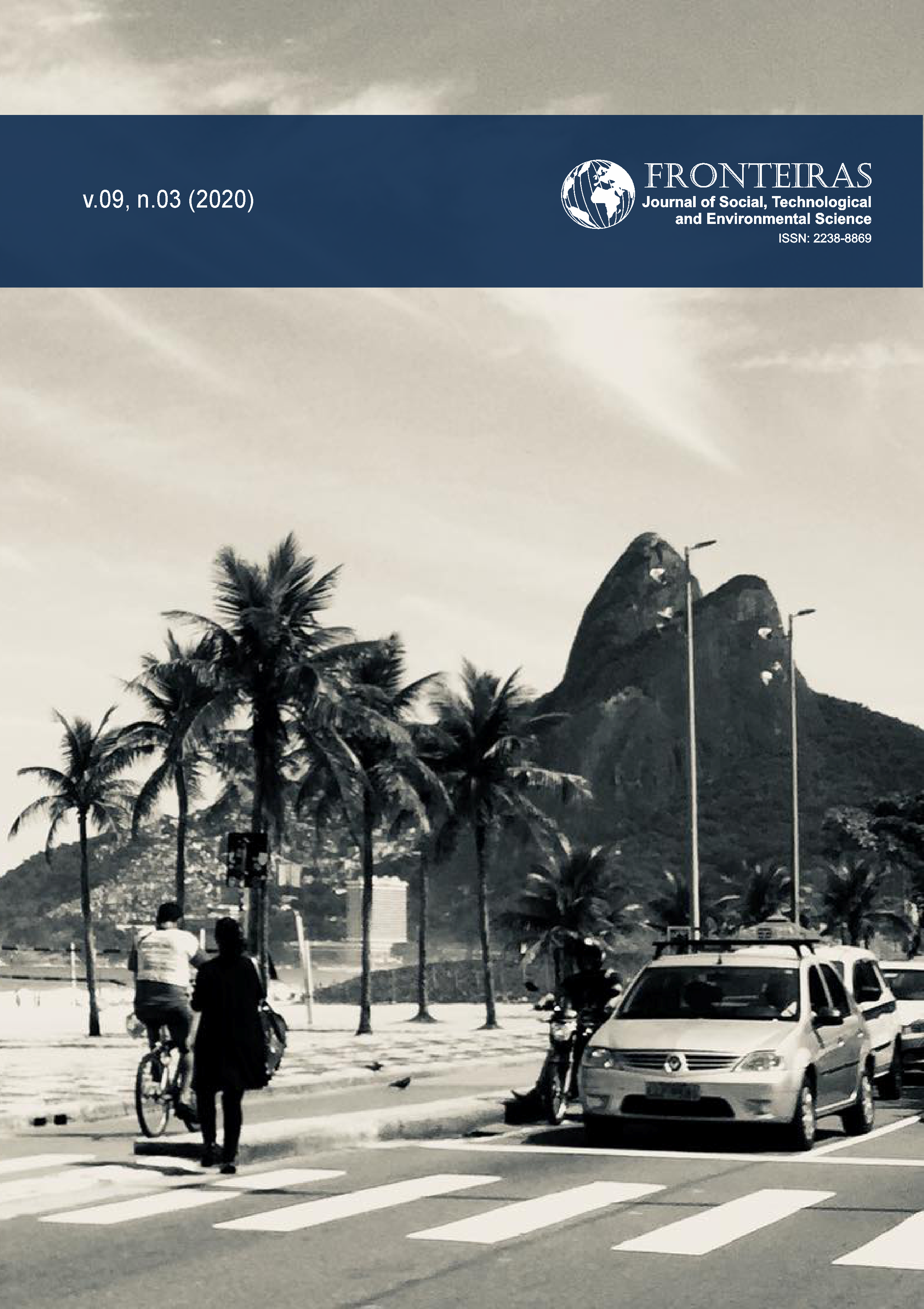Typology of the Universities Colombian and Typical of his Corporate Government, a Review from his Bylaws
DOI:
https://doi.org/10.21664/2238-8869.2020v9i3.p220-238Keywords:
Corporate Government, University Governance, University Government, Higher EducationAbstract
The purpose of this article is to describe the types of universities that exist within the university system in Colombia as well as the most relevant characteristics in their corporate government structure composed by the Maximum Collegiate Body (MCC) and the president as the executive actor of the university organization. 83 organic bylaws of the Higher Education Institutions (IES) with university academic character were considered. Variables were analyzed related to distribution and presence in the country, action fields and academic programs, juridical nature of the institutions, quality assurance, government organs and the university president. The results show a government organ diversity differentiated by their definition and functions both in the collegiate bodies and in the personal authorities, aspects related to the found typologies. It was concluded that it is necessary to establish a common criteria to orientate the practices of a good government in the IES in the framework of their autonomy that approaches topics such as conflicts of interest, to articulate the relation between coverage and quality, that promotes qualification of the managerial teams for the university management, the encouragement of meritocracy in the processes of selection, the definition of functions in the MCC and the participation of all of the groups of interest (internal and external) of the university community.
References
Alcántara Santuario, Armando. 2006. “Tendencias Mundiales En La Educación Superior: El Papel de Los Organismos Multilaterale.” Revista Inter Ação 31 (1): 11–33. https://doi.org/10.5216/ia.v31i1.1490.
Bautista, Jaime Silva, Elizabeth Bernal Gamboa, and Camilo Hernández Sanabria. 2014. Modelo de Aseguramiento Interno de La Calidad Para Las Instituciones de Educación Superior En El Marco Del Mejoramiento Continuo de La Calidad de La Educación Superior En Colombia. Bogotá. Ministerio de Educación Nacional; Secretaría Ejecutiva del Conveio Andrés Bello; Consorcio ACE.
Brunner, José Joaquín, and Francisco Aníbal Ganga-Contreras. 2016. “Dinámicas de Transformación En La Educación Superior Latinoamericana: Desafíos Para La Gobernanza.” Opción: Revista de Ciencias Humanas y Sociales 32 (80): 12–35.
Congreso de Colombia, El. 1991. Constitución Política de Colombia de 1991. http://www.secretariasenado.gov.co/senado/basedoc/constitucion_politica_1991.html.
———. 1992. Ley 30 de Diciembre 28 de 1992, Por El Cual Se Organiza El Servicio Público de La Educación Superior. https://www.cna.gov.co/1741/articles-186370_ley_3092.pdf.
———. 1994. Decreto 1478 de Julio 13 de 1994, Por El Cual Se Establecen Los Requisitos y Procedimientos Para El Reconocimiento de Personería Jurídica de Instituciones Privadas de Educación Superior, La Creación de Seccionales y Se Dictan Otras Disposiciones. http://www.suin-juriscol.gov.co/viewDocument.asp?ruta=Decretos/1294253.
———. 2008. Ley 1188 de Abril 25 de 2008, Por La Cual Se Regula El Registro Calificado de Programas de Educación Superior y Se Dictan Otras Disposiciones. http://www.suin-juriscol.gov.co/viewDocument.asp?ruta=Leyes/1826776.
———. 2015. Decreto 1075 de Mayo 26 de 2015, Por Medio Del Cual Se Expide El Decreto Único Reglamentario Del Sector Educación. http://www.suin-juriscol.gov.co/viewDocument.asp?ruta=Decretos/30019930.
———. 2019. Decreto 1330 de Julio 25 de 2019, Por El Cual Se Sustituye El Capítulo 2 y Se Suprime El Capítulo 7 Del Título 3 de La Parte 5 Del Libro 2 Del Decreto 1075 de 2015 -Único Reglamentario Del Sector Educación. https://www.mineducacion.gov.co/1759/articles-387348_archivo_pdf.pdf.
Galetar, Luis Porter. 1999. “Crisis En El Gobierno de Nuestras Universidades Públicas.” Revista Electrónica de Investigación Educativa 1 (1): 54–71.
Ganga-Contreras, Francisco Aníbal. 2005. “Análisis Preliminar Del Gobierno Universitario Chileno.” Revista Venezolana de Gerencia 10 (30): 213–46.
———. 2017. “El Flipper Burocrático En Las Universidades.” Interciencia 42 (1): 58–62.
Ganga-Contreras, Francisco Aníbal, and Silvia A. Maluk Uriguen. 2015. “Tipos y Características Más Distintivas de Las Universidades Ecuatorianas.” In Gobernanza Universitaria. Aportes Desde Una Perspectiva Latinoamericana, edited by Francisco Aníbal Ganga-Contreras and Juan Bautista Abello, 271–87. Santiago: RiL editores.
Ganga-Contreras, Francisco Aníbal, María Encarnación Ramos Hidalgo, Antonio Genaro Leal Millán, and Patricio Eugenio Valdivieso Fernández. 2015. “Teoría de Agencia (TA): Supuestos Teóricos Aplicables a La Gestión Universitaria.” Innovar: Revista de Ciencias Administrativas y Sociales 25 (57): 11–26. https://doi.org/10.15446/innovar.v25n57.50324.
Ganga, Francisco, Juan Quiroz, and Paulo Fossatti. 2016. “Análisis Sincrónico de La Gobernanza Universitaria: Una Mirada Teórica a Los Años Sesenta y Setenta.” Educação e Pesquisa 43 (2): 553–68. https://doi.org/10.1590/s1517-9702201608135289.
Ministerio de Educación Nacional. 2013. “Guía Para La Creación e Implementación de Códigos de Buen Gobierno En Las Instituciones de Educación Superior.” https://www.mineducacion.gov.co/1621/articles-330454_archivo_pdf_10_Guia_Creacion.pdf.
Ministerio de Educación Nacional, Pontificia Universidad Javeriana-Escuela Javeriana de Gobierno y Ética Pública y Telescopi-Colombia. 2014. Ministerio de Educación Nacional, Pontificia Universidad Javeriana-Escuela Javeriana de Gobierno y Ética Pública y Telescopi-Colombia.
Sanabria, Mauricio. 2006. “La Gestión En La Universidad Colombiana: Algunos Fundamentos, Realidades, Propuestas y Oportunidades.” Revista Facultad de Ciencias Económicas 14 (1): 66–117.
SNIES. 2019. “Sistema Nacional de Información de La Educación Superior - SNIES.” 2019. https://snies.mineducacion.gov.co/consultasnies/institucion#.
Superintendencia de Sociedades, Cámara de Comercio de Bogotá, and Confecámaras. 2009. Guía Colombiana de Gobierno Corporativo Para Sociedades Cerradas y de Familia. Bogotá: Superintendencia de Sociedades; Cámara de Comercio de Bogotá; Confecámaras. https://bibliotecadigital.ccb.org.co/bitstream/handle/11520/3037/8229_guiacolgobcorporativo.pdf.
Downloads
Published
How to Cite
Issue
Section
License
This journal offers immediate free access to its content, following the principle that providing free scientific knowledge to the public, we provides greater global democratization of knowledge.
As of the publication in the journal the authors have copyright and publication rights of their articles without restrictions.
The Revista Fronteiras: Journal of Social, Technological and Environmental Science follows the legal precepts of the Creative Commons - Attribution-NonCommercial-ShareAlike 4.0 International. 


